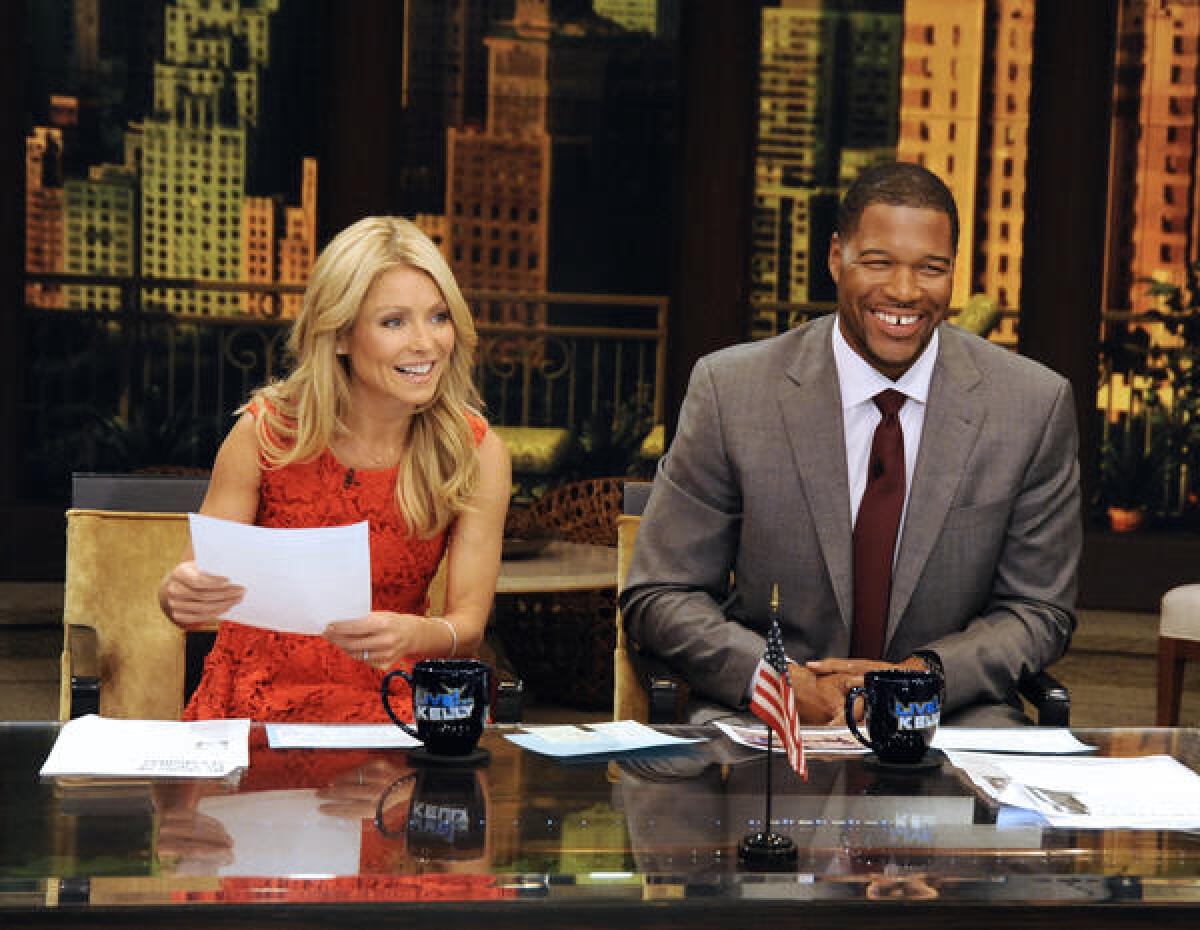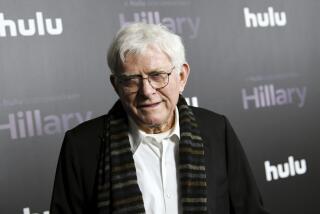Black daytime TV hosts are among the most bankable stars

- Share via
In daytime television, black is the new black.
Television programmers, in their search for the next big thing, have found that charismatic African American entertainers are potent magnets who attract mainstream and ethnically diverse audiences.
This past summer, Warner Bros. tested a round-table talk show called “The Real” with a sassy attitude and a racially diverse cast. The show outperformed another experimental talk show, hosted by reality TV maven Kris Jenner, mother of the Kardashian clan.
Comedian Steve Harvey provided the TV industry with its eureka moment. After Harvey became the first African American host of “Family Feud” four seasons ago, the game show began exploding in popularity. Last year, its viewership soared 40% to an average of 7 million viewers an episode. Ratings for the 37-year old program hadn’t reached such heights since the early 1990s.
ON LOCATION: Where the cameras roll
“Always follow the money,” said J. Fred MacDonald, a media historian who has studied the portrayal of African Americans in television. “There is a rich pot of money for these syndicators who are coming to the realization that the African American audience can make them successful.”
Queen Latifah launched a new talk show in September for Sony Pictures Television. Cedric the Entertainer replaced Meredith Vieira as host of Walt Disney Co.’s syndicated “Who Wants to Be a Millionaire,” and ratings soared.
Daytime soap operas and round-table gabfests, “The View” and “The Talk,” boast ethnically diverse casts. Black comedian Wayne Brady calls the shots on “Let’s Make a Deal,” and Wendy Williams, a former New York radio DJ, has blossomed into a bona fide daytime star with her girlfriend talk show. Last season, Harvey branched out with his own syndicated show.
Oprah Winfrey’s long-running talk show transcended racial barriers, proving that an African American host could be an enormous draw. But TV executives had long considered Winfrey in a class by herself. So when she prepared to end her syndicated show two years ago, programmers looked to prominent news personalities like Couric and CNN’s Anderson Cooper to capture Winfrey’s displaced viewers.
PHOTOS: Celebrities by The Times
Cooper’s talk show for Warner Bros. ended after two seasons, and Couric’s show -- which is costly to produce -- seems to be on the bubble.
Providing entertainment for an underserved black audience explains part of the success of these shows. African Americans make up about 13% of the U.S. population, but more than 18% of the daytime TV audience, according to Nielsen. African Americans also have buying power estimated at $1 trillion a year, which is expected to grow to $1.3 trillion by 2017.
But these entertainers also are connecting with younger viewers and whites, Latinos and Asians, which forced the industry to rethink some of its assumptions.
“These shows are reaching an underserved audience and we have found personalities that are appealing across different racial and ethnic groups,” said Ken Werner, president of Warner Bros. Domestic Television Distribution.
PHOTOS: Cable versus broadcast ratings
Programmers also have gotten better at identifying niches within the black audience, said Esther Franklin, an executive vice president with advertising firm Starcom MediaVest Group.
“The daytime talk show was a proven genre but it is now being looked at through a different lens,” Franklin said. “These hosts are bringing new experiences to the table.”
Wendy Williams appeals to younger, celebrity and fashion-conscious viewers while the core demographic for Steve Harvey’s talk show is middle-aged women, often single mothers, who have strong ties to religion and are interested in nurturing their relationships, Franklin said.
The Disney/ABC Domestic Television team spent nine months searching for a replacement for the 28-year veteran Regis Philbin who retired at the end of 2011. The team tried out 59 guest hosts, the majority of them white men.
PHOTOS: 2012 highest-paid media executives
Throughout the process, Michael Gelman, the show’s longtime executive producer, was most intrigued by the combination of Kelly Ripa and Michael Strahan, a former New York Giants defensive end who is a co-host of Fox’s Sunday NFL studio team of former players and coaches.
The decision to cast the 6-foot-5 Strahan opposite the 5-foot-3 Ripa wasn’t about color, Gelman said.
“The fact that Michael is African American was terrific, but our decision had much less to do with race and more to do with chemistry,” Gelman said. “He is warm, accessible and you have this great contrast on screen of this big football player and this petite blond.”
Gelman acknowledged the pair make an odd couple.
“Some people thought that would be the reason that we wouldn’t select Michael, but I found it to be interesting, a great visual contrast,” Gelman said. “Michael came in and he just lit up the room and he has just hit it out of the park.”
In an interview this fall, Queen Latifah said that being a woman and an African American was part of her identity. But her fans have come from different demographic groups, from “young kids to old folks, to every color, race, religion, gay, straight ... this big group that is not defined by one thing or another,” she said.
The trend in daytime TV should demonstrate that African Americans are a dynamic group, Latifah said.
“The more we can see ourselves in different ways, the more other people can’t stereotype us or judge us or lump us all together like one group of people,” she said. “I’ve always looked at people as just people.”
ALSO:
Daytime TV embracing black entertainers; prime-time, less so
MPAA backs anti-piracy curriculum for elementary school students
Follow Meg James and Greg Braxton on Twitter: @MegJamesLAT; @GeBraxton
More to Read
From the Oscars to the Emmys.
Get the Envelope newsletter for exclusive awards season coverage, behind-the-scenes stories from the Envelope podcast and columnist Glenn Whipp’s must-read analysis.
You may occasionally receive promotional content from the Los Angeles Times.











